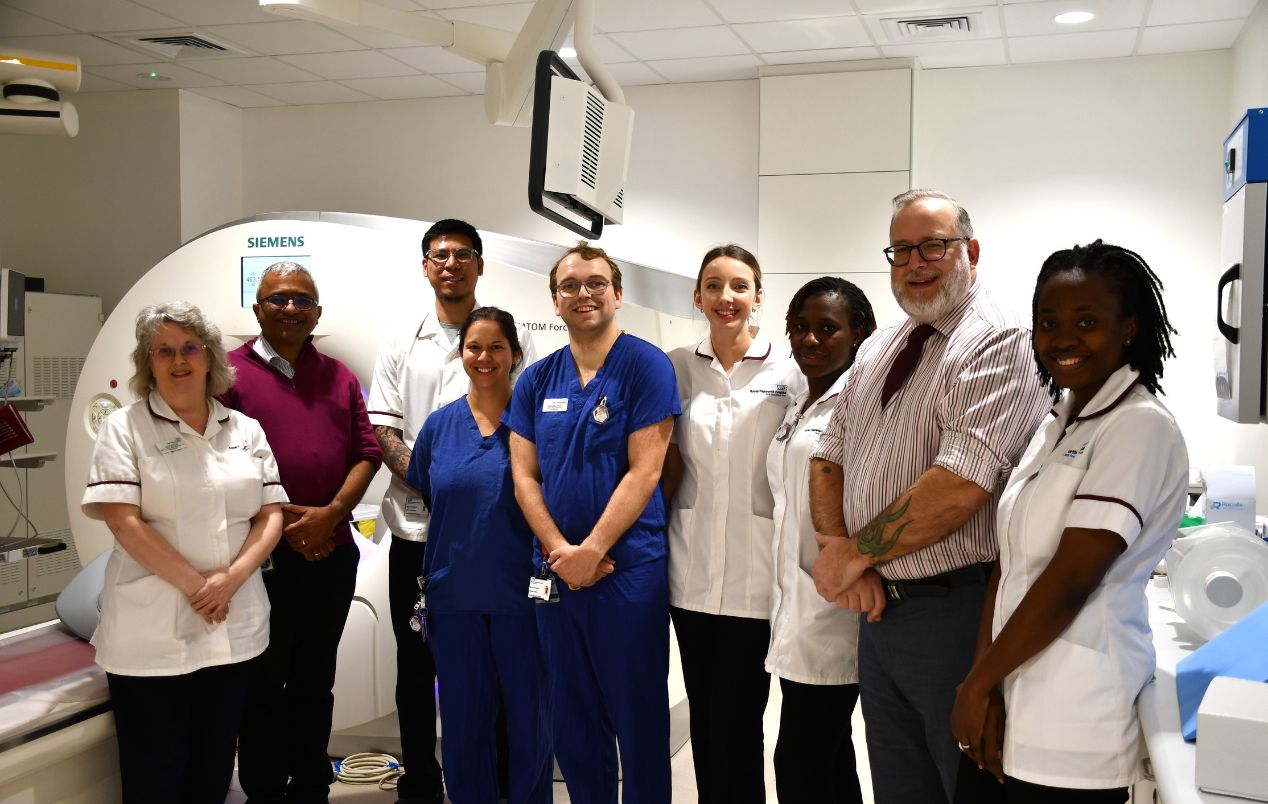Clinicians at Royal Papworth Hospital NHS Foundation Trust are using AI technology to help deliver faster and more accurate diagnoses of strokes.
AI algorithms used by the Brainomix e-Stroke system helps interpret CT scans taken at Royal Papworth, providing real-time information for hospital staff and NHS colleagues delivering care at specialist stroke units nationwide.
The technology helps doctors to make informed decisions, allowing more stroke patients to get the right treatment, in the right place, at the right time.
The most common type of stroke, an ischaemic stroke, is caused by a blood clot cutting off blood flow to part of the brain. A mechanical thrombectomy (MT) is a minimally-invasive procedure that involves the clot being pulled or sucked out using a special device, which restores blood flow.
This procedure is most effective the faster it can be carried out before a stroke, meaning prompt identification is vital to ensure the best outcomes for patients.

Consultant radiologist Dr Bobby Agrawal (second left), Chief Information Officer Andrew Raynes (second right) and members of the multidisciplinary radiology team.
Dr Bobby Agrawal is consultant radiologist at Royal Papworth Hospital and clinical lead for the East of England Diagnostic Imaging Network (EDIN):
“Acute strokes are difficult to diagnose on CT scans. Our radiologists are heart and lung specialists, rather than expert radiologists, so they are not necessarily recognising all signs of a stroke.
“This is where the Brainomix systems helps, by analysing scans using AI algorithms to provide a faster and more accurate diagnosis.
“It then makes data instantly available to specialist stroke units, such as at Addenbrooke’s Hospital right here in Cambridge, speeding up the diagnosis of stroke and therefore allowing patients to receive treatment at the earliest opportunity.”
Dr Alain Vuylsteke, Consultant Intensivist and Clinical Director of Surgery, Transplantation and Anaesthetics at Royal Papworth Hospital, said:
“This is a great innovation demonstrating how AI can support the work of clinicians and speed up treatment to the appropriate patients. Our team of expert radiologists are all welcoming this new tool that should help more patients to avoid the devastating consequences of stroke.”
Andrew Raynes is Chief Information Officer at Royal Papworth Hospital:
‘’It’s been a great team effort and I feel proud of the planning which supported the safe launch of this AI technology.
“As a result of the successful introduction of Brainomix, we are helping to ensure the rapid assessment of the signs of stroke, providing our hospital teams with greater agility to respond to vital individual health needs in a timely way.”
